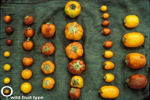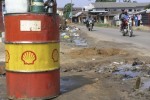Worker Co-ops Expand in U.S. Despite Rust-Belt Economy
By Susan Arterian Changs, YES! In the heart of inner Cleveland, Ohio, and abandoned by the global economy, the Evergreen Cooperative has emerged as one of the most promising models of locally based wealth-building in the U.S.
Continue reading →











